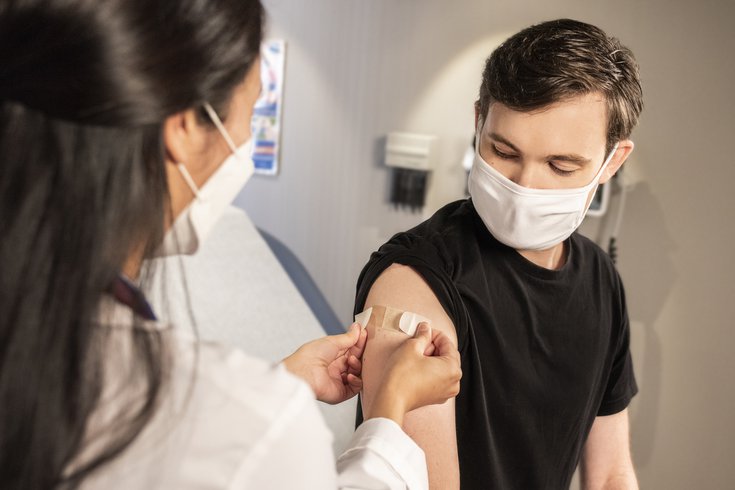
February 23, 2022
 CDC/Unsplash
CDC/Unsplash
An 8-week interval between the first and second doses of the Pfizer and Moderna COVID-19 vaccines may lower the risk of myocarditis, the CDC says.
A longer interval between the first and second doses of the Pfizer and Moderna COVID-19 vaccines may reduce the risk of myocarditis, according to new guidance from the U.S. Centers for Disease Control and Prevention.
"An 8-week interval may be optimal for some people ages 12 years and older, especially for males ages 12–39 years," the guidance says.
The CDC says the original intervals are still safe and effective, but that a longer interval may reduce the risk of myocarditis, a type of heart inflammation that has been reported in some populations after the second dose of the Pfizer and Moderna vaccines.
Previous guidance recommended the second doses be administered three weeks after the first dose of the Pfizer vaccine or four weeks after the first shot of the Moderna vaccine.
Those intervals are still recommended for seniors, people who are immunocompromised and anyone who needs faster protection due to high community transmission or risk of severe illness.
Because there is not data on children younger than 11, the CDC says the second Pfizer vaccine is still recommended three weeks after the first shot.
Though cases of myocarditis related to COVID-19 vaccination remain rare, males ages 12-29 are at the highest risk, the CDC reports.
Some studies in people older than 12 have found this small risk might be reduced, and antibody response strengthened, with a dosing interval longer than 4 weeks.
The CDC emphasized that regardless of the interval between the two doses, the benefits provided by both vaccines outweigh the risk of myocarditis compared to no vaccine at all.